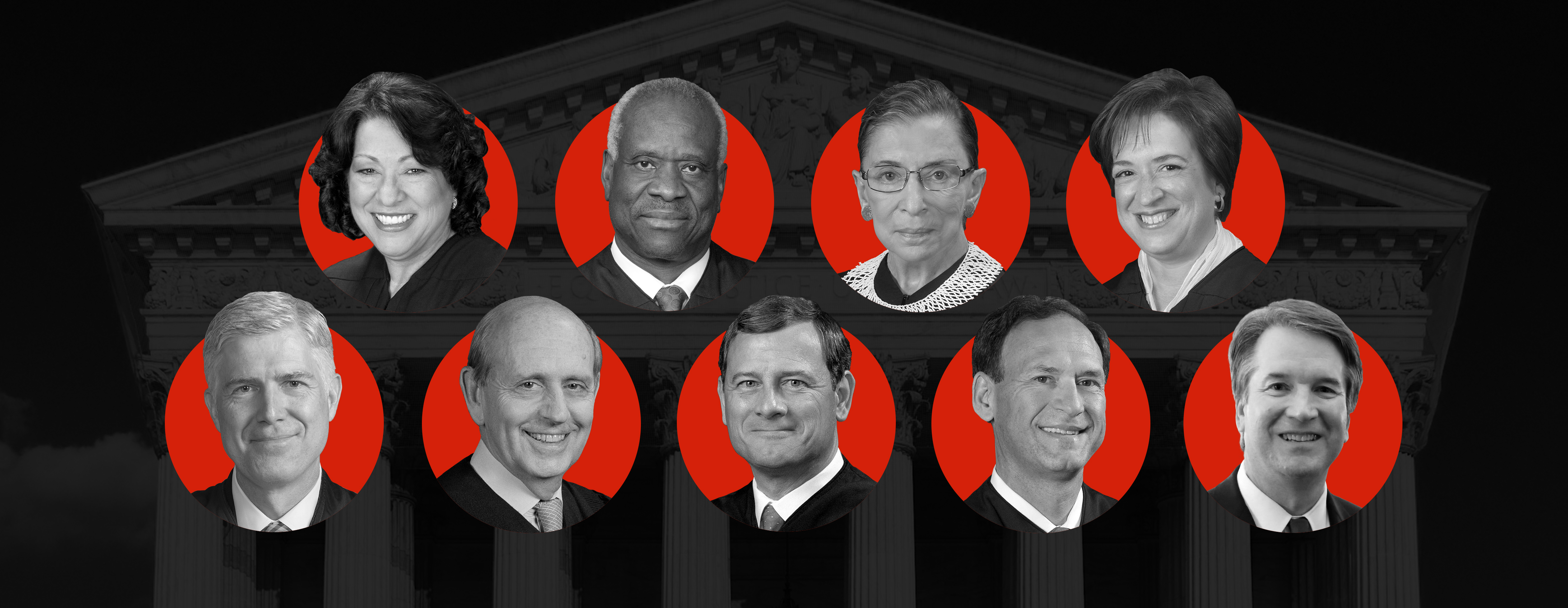This Is Not About Kavanaugh (Or Ginsburg, For That Matter)
Democrats Introduce SCOTUS Ethics Bills That Should Gain GOP Support
 Today, Fix the Court is applauding the introduction of the Supreme Court Ethics Act in both the House and Senate but is asking, given recent Republican support for a high court code of conduct, why both bills are Democrats-only.
Today, Fix the Court is applauding the introduction of the Supreme Court Ethics Act in both the House and Senate but is asking, given recent Republican support for a high court code of conduct, why both bills are Democrats-only.
Last week’s House Judiciary hearing on H.R. 1 – the Democrats’ collection of voting rights, campaign finance and ethics reforms – revealed bipartisan support[1] for Section 7001 of the bill (and only for Section 7001), which would create a formal ethics code for Supreme Court justices, and whose exact language[2] was replicated in the two standalone measures introduced today. This language first appeared last Congress in H.R. 6755, a bill introduced by four Republicans that passed House Judiciary by voice vote in Sept. 2018.
Here is the thinking behind the bill text: requiring the Judicial Conference, over which Chief Justice Roberts presides, to promulgate a code for all Article III judges mitigates some constitutional concerns, and the potential carve out for the justices (“provisions…applicable only to certain categories”) acknowledges there may be some part of the code that, given the justices’ unique role, should not apply to them.
In FTC’s most recent poll (May 2018, p. 131), 85% of Democrats, 89% of Republicans and 80% of independents said they wanted a SCOTUS ethics code implemented.
“Few policy provisions are as popular these days as requiring the Supreme Court to abide by basic ethical obligations,” FTC executive director Gabe Roth said. “And there’s no question that the bills introduced today would be just as critical had Justice Ginsburg not made tasteless comments about President Trump in 2016 or had Justice Kavanaugh not made inappropriate assertions about the left in his confirmation hearing last year. Yet their remarks only underscore the need for a more robust code, which, when enacted, should cause the justices to think twice before saying or doing something that would impugn their institution’s integrity or their own impartiality.”
Again, the types of activities that an ethics rubric would caution against are not a response to the actions of a single or even a handful of justices; rather, all nine have engaged in speech or activities in recent years that, to a disinterested observer, could be seen as unethical. This includes failing to recuse from a case or petition despite an obvious conflict (Roberts and Kagan), speaking before a politically affiliated organization (Alito, Sotomayor and Gorsuch) or accepting gifts and travel from a well-known activist (Thomas and Breyer).
For more on Supreme Court ethics, see this Fix the Court factsheet.
————————
[1] “H.R. 1 also includes a provision that passed last year, on a bipartisan basis, to require the development of a judicial code of ethics that would apply to all federal judges, including the Supreme Court – the only court in the country currently not subject to any binding code of ethics,” Chairman Jerry Nadler said at the hearing.
“I do want to find one – I always like to try and maybe find one point of agreement that we can have on this. […Let’s] explain a little bit more about the Supreme Court and encouraging them to put [an ethics code] together because that’s something I think we can find agreement on,” Ranking Member Doug Collins added minutes later.
[2] “Not later than one year after the date of the enactment of this section, the Judicial Conference shall issue a code of conduct, which applies to each justice and judge of the United States, except that the code of conduct may include provisions that are applicable only to certain categories of judges or justices.”